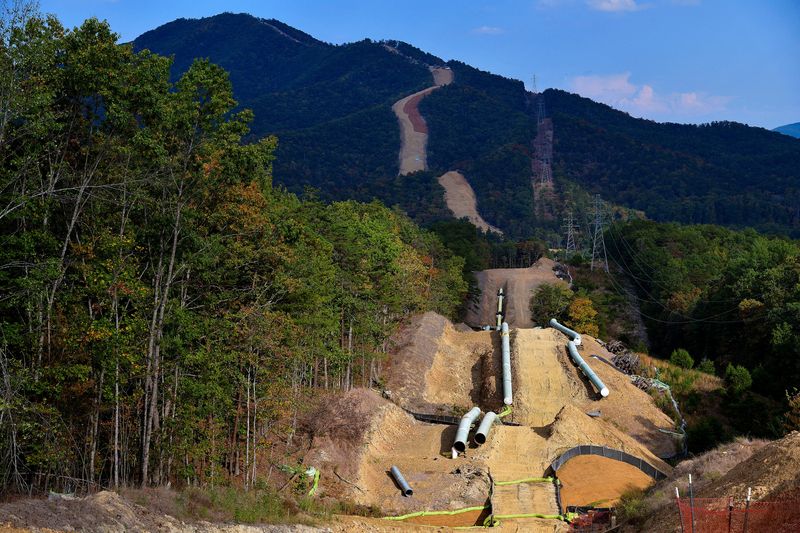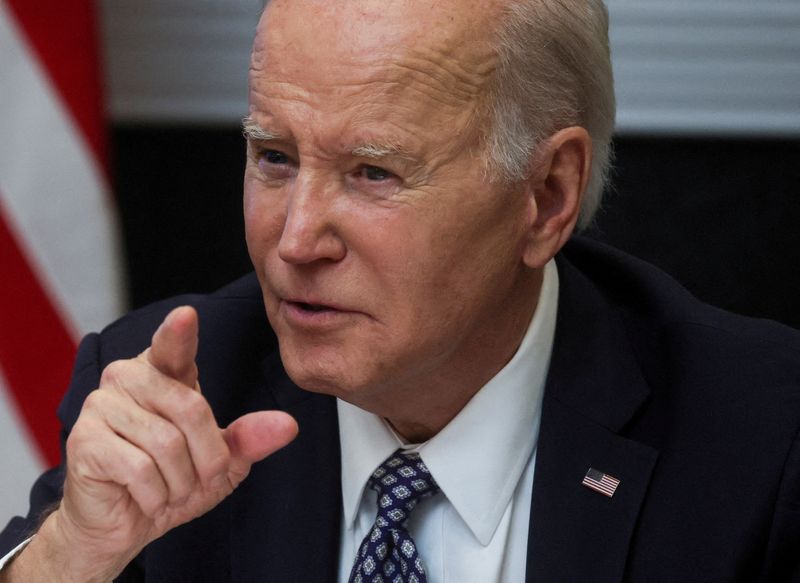By Jarrett Renshaw and Timothy Gardner
WASHINGTON (Reuters) -The White House on Wednesday called on Congress to pass permitting legislation that would help speed up clean energy and fossil fuel projects as the bipartisan effort gets pulled into a standoff on the debt ceiling.
The renewed push on permitting reform comes the day after President Joe Biden met with top Republican and Democratic lawmakers for the first time in three months to avoid a historic default on U.S. debt that the Treasury Department has warned could come in weeks.
Republicans have made permitting reform a priority and Biden, who last year supported a bill from Senator Joe Manchin, a fellow Democrat, indicated on Tuesday to House Speaker Kevin McCarthy that he was open to discussing the issue as part of the talks.
White House climate adviser John Podesta called for delinking issues like permitting reform from the debt ceiling fight, and said Republicans were using the threat of a historic default to coerce Democrats to the negotiating table.
"That’s bad for the economy, bad for the American people," Podesta told attendees at a forum hosted by the Bipartisan Policy Center on Wednesday.
The reform measures that apply to oil and gas projects are opposed by progressive Democrats and environmental groups who say they could green light dangerous projects.
"Right now, the permitting process for clean energy infrastructure, including transmission, is plagued by delays and bottlenecks," Podesta said.
"These delays are pervasive at every level of government, federal, state and local. We got so good at stopping projects that we forgot how to build things in America."
The White House is backing a bill by Manchin of West Virginia, who has grown more critical in recent months of the administration's attacks on the fossil fuel industry. West Virginia is a major coal producer and Manchin's family has benefited financially from the industry.
Manchin told reporters on a call that permitting could be tackled as a standalone bill or be attached to legislation on the debt ceiling, saying he just wanted a "good bill that solves the problems and lets America be competitive."
Christy Goldfuss, chief policy impact officer with the Natural Resources Defense Council, said her organization supports some of Biden's efforts but opposes the Manchin bill.
"We won’t build the clean energy economy of the future by doubling down on the dirty fuels of the past. We won’t confront the climate crisis by deepening our dependence on fuels that endanger the planet," Goldfuss said.
The White House released a detailed fact sheet that outlined 11 priorities on Wednesday, including faster deployment of electrical transmission across state lines.

Manchin's legislation sets a two-year limit on environmental reviews of major federal energy projects, including ones on fossil fuels and directs the president to designate at least 25 high-level energy projects and prioritize their permitting.
The bill also calls for completion of the $6.6 billion Equitrans Midstream (NYSE:ETRN) Corp's Mountain Valley Pipeline, which would run through Manchin's state.
